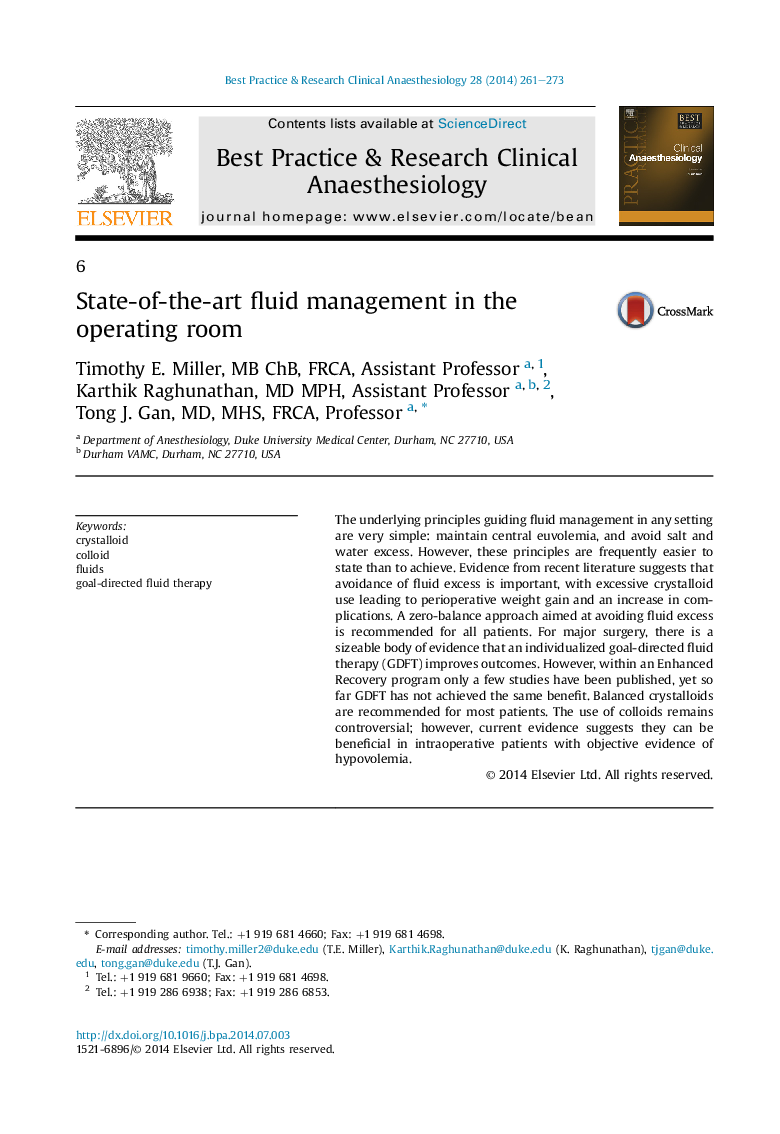| Article ID | Journal | Published Year | Pages | File Type |
|---|---|---|---|---|
| 5881808 | Best Practice & Research Clinical Anaesthesiology | 2014 | 13 Pages |
Abstract
The underlying principles guiding fluid management in any setting are very simple: maintain central euvolemia, and avoid salt and water excess. However, these principles are frequently easier to state than to achieve. Evidence from recent literature suggests that avoidance of fluid excess is important, with excessive crystalloid use leading to perioperative weight gain and an increase in complications. A zero-balance approach aimed at avoiding fluid excess is recommended for all patients. For major surgery, there is a sizeable body of evidence that an individualized goal-directed fluid therapy (GDFT) improves outcomes. However, within an Enhanced Recovery program only a few studies have been published, yet so far GDFT has not achieved the same benefit. Balanced crystalloids are recommended for most patients. The use of colloids remains controversial; however, current evidence suggests they can be beneficial in intraoperative patients with objective evidence of hypovolemia.
Related Topics
Health Sciences
Medicine and Dentistry
Anesthesiology and Pain Medicine
Authors
Timothy E. (Assistant Professor), Karthik (Assistant Professor), Tong J. (Professor),
